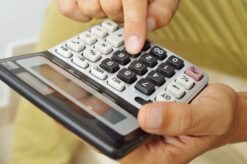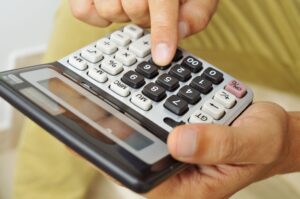
You may not have to make any further debt payments after you go Bankrupt. Whether you do or not depends on whether you have any surplus income.
Included in this article:
- Will you have to pay towards your debts once Bankrupt?
- What if your circumstances change?
- Do you have to make payments if you are on Benefits?
- Paying debts not included in your Bankruptcy
Rather speak to someone? Call 0800 077 6180 or fill in the form below and we’ll call you
How much will I pay each month if I go Bankrupt?
If you go Bankrupt you still have to pay towards your debts if you can afford to do so. What happens if you cannot afford to make monthly payments? How long will any payments you have to make last? To find out more please visit: http://beatmydebt.com/bankruptcy-frequently-asked-questions/do-i-have-to-pay-towards-my-debts-if-i-go-bankrupt
Will you have to pay towards your Debts once Bankrupt?
If you have no surplus income, you will not have to make any payments towards your debts after you go bankrupt. This is one of the major advantages of the solution.
As long as your income does not improve during the year, no further payments will be required.
That said, where you do have a surplus income, you will have to pay this towards your debts. The payments will last for a maximum of 3 years. After this time the payments stop and any debt still owed is written off.
When you do have to make payments towards your debts, this is known as an IPA (Income Payment Agreement). If your income falls while it is in place, your payments are reduced or stopped altogether. In the same way, if your income improves your payments may have to increase.
If you receive a bonus payment or earn significant extra overtime during an IPA you must report this to the Official Receiver. They will normally take this money from you in addition to your standard monthly payment.
What happens to your Debt Payments if your Circumstances change?
If your financial circumstances change while you are bankrupt you are legally obliged to inform the OR. They will then re-assess your disposable income and determine whether there is any change.
If there is a change and you are already making IPA payments these will either increase or decrease accordingly. Where your disposable income increases and are not already making payments it is likely that these will start.
If you are required to start an IPA part way through your bankruptcy it will still last for three years. You will still be discharged in the mean time but the payments will continue for the full 36 months.
A IPA can be put in place at any time before you are discharged. However if it has not happened by the time you are discharged it will never happen. Any extra you earn after this time is yours to keep.
Do you have to make Debt Payments if you are on Benefits?
There is nothing to stop you going Bankrupt if you are receiving Benefits. If they are your only source of income it is very unlikely that you will be asked to make any further debt payments.
The benefits you receive are calculated to cover only your essential living expenses. They are not designed to allow you to repay debt on top.
Having said that if you are working and receive tax credits in addition to your wages your total income will be taken into account. If you have any disposable income in these circumstances you might be required to start an IPA.
If the benefits you receive are great enough to provide you with disposable income you may be required to make debt payments if you go Bankrupt. However it would be unusual.
Paying debts not included in your Bankruptcy
Most if not all your unsecured debts will be included in your bankruptcy. However some debts are not included and still have to be paid.
A good example of these are mortgages and other secured loans. However they also include CSA arrears, Court fines (such as speeding tickets) and Student Loans Company debt.
A sufficient amount must be included in your living expenses budget to allow you to cover these payments.
You will be personally liable for any debts that you incur after the date you are declared bankrupt. You will have to pay these in full.
Arrange a call with a Bankruptcy Expert
Privacy Policy
Your information will be held in strictest confidence and used to contact you by our internal team only. We will never share your details with any third party without your permission.



Hi,
My partner earns very little, she pays for some of our bills and has very little left afterwards. Some months I’ve had to pay some of her bills etc. Will the O.r take this into account? Will they ask for her bank statements etc too?
Many thanks
Hi Sean
If your partner has a very low income it is unlikely she will have to make payments towards her debts if she goes bankrupt. The income and expenses budget on her application still has to be completed with care. But done right there should be no problem. It is very unlikely she will have to provide bank statements but it is possible.
I owe over £18000 i have had my house reposessed. I want to go bankrupt . when i do my income and out goings without paying any of my debts I have £180 left over . this doesnt cover anywhere near what I owe. will they let me go bankrupt
Hi Denis
The fact that you have surplus income does not prevent you from going bankrupt. Far from it. Your application would be accepted if it were submitted.
Just remember that the official receiver will review your income and expenses. You will be required to pay any agreed surplus towards your debts for 3 years in the form of an IPA. You are right these payments will not cover the debt you owe. Any debt outstanding is written off. You are no longer liable for it.
Hi,
I am thinking of going bankrupt. I am a part time worker and get UC. I work bank work as i care for my daughter as she in receipt of pip. What is the likely hood of me having to pay monthly towards these debts and if so how much roughly for income of 16000 with benefits? My debt is 12500
Hi Sharon
If you go bankrupt whether you will have to make ongoing payments towards your debt is not related to how much income you have each month. It is based on whether you have any surplus. Where you have surplus income this is the amount you have to pay. As highlighted in the article above, your surplus income (also called disposable income) is calculated by deducting your total living expenses from your total income.
From what you have said it looks as though your income including your Universal Credit is relatively low. As such I would be surprised if you had any surplus income at all at the end of the month after taking into account all your expenses. If this is the case you will not have to make any ongoing payments at all if you go bankrupt.
I assume you live in rented accommodation? If so and because your debt is less than £20,000 I suggest you also consider the option of a debt relief order. This will give you exactly the same outcome and benefits as going bankrupt but will only cost £90 to implement.